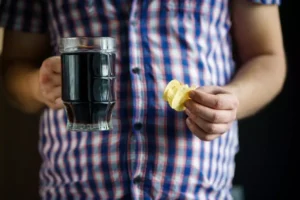
If your leaving an alcoholic body is used to a certain amount of alcohol, you may feel certain effects when you stop. How you feel when you stop drinking is largely based on how often and how heavily you drink. People who only drink occasionally probably won’t notice any physical or psychological symptoms.
- Remember that while alcoholism is a difficult disease to overcome, recovery is possible with the right help and resources in place.
- Your partner may prioritize drinking over spending time with friends and family, leaving you feeling lonely and disconnected from your support system.
- Boundaries can help protect your own well-being and communicate your needs and expectations to your partner.
- Attending a rehab center and receiving alcohol detox may be a first stage of treatment followed by individual and group therapy practices.
What Are the Legal Consequences of Alcohol Abuse?
Understanding personal drinking habits can be pivotal in the journey to cut back. After finishing a drink, take a 20-minute break before having another. This pause reduces the urge to binge, important for contexts like college settings, where the pressure to drink can be intense. An awareness of such habits and triggers not only supports moderation but enhances overall well-being. One damaging misconception is that withdrawal is a matter of willpower.
How Alcohol Addiction Is Like an Abusive Relationship
With patience, understanding, and open communication, https://ecosoberhouse.com/ it’s possible to navigate this challenging situation and come out the other side stronger and more resilient than ever before. One of the biggest problems is the emotional toll it takes on the partner. Living with someone who has a drinking problem can be stressful and unpredictable. The alcoholic may become aggressive, abusive, or moody when under the influence, leading to arguments, fights, and even violence.

How To Redefine Your Relationship With Alcohol

On the other hand, some alcoholic spouses try to stop and choose to go to rehab and treatment. However, you notice a pattern of them showing signs that they want to change, and then relapsing time and time again. This is not only discouraging but disappointing for all of the efforts you have put into trying to get them the help they need. They are choosing to take treatment half-heartedly which is not fair to you or your relationship. Everyone wants to have a happy family but sometimes, divorcing an alcoholic spouse is the best thing you can do especially if you see that your family is falling apart because of alcohol abuse. In these moments he feels like a different person — quick to temper and to escalate an argument.

Remember, knowing your “why” can help you stay focused during difficult moments. Xenia Ellenbogen (she/they) is a journalist specializing in health, mental health, and wellness. Her writing has appeared in publications such as Everyday Health, Well+Good, Rewire News Group, Prism, and more. While stage 3 symptoms can be most severe, symptoms also start to resolve during this time.

Recognize the signs of alcohol use disorder
You need to know that your experience with an alcoholic spouse is traumatic and damaging to you and your children. So long as you stay with your alcoholic spouse, you’ll be sharing the responsibility for those bad decisions. Deciding to leave is hard, especially considering all the things you’ve likely been through with your spouse. It won’t be easy, and you may have second thoughts about whether it’s the right decision.
- Discover tips for staying sober one day at a time and navigate recovery with confidence and support.
- Discover how alcoholism develops over time, its impact on health, and the stages of this long-term progression.
- Taking care of yourself allows you to build resilience and find strength in difficult situations.
An alcoholic partner may not be able to provide the support or stability you need, as their addiction often takes precedence over the relationship. Focusing on self-care is crucial, and sometimes this means making the tough decision to end the relationship, regardless of your partner’s intentions or promises to change. For those looking to reduce or quit alcohol, establishing new habits and routines is crucial. Drinking affects alcoholism symptoms both physical and mental health, and giving it up can offer numerous benefits. This guide outlines practical tips and strategies to help you embark on the journey to sobriety, ensuring you make informed decisions about your health and lifestyle.
